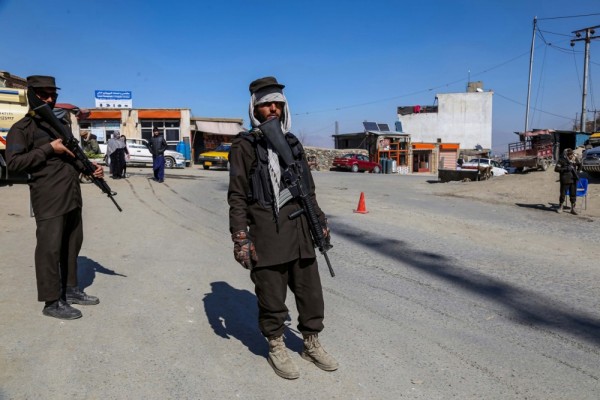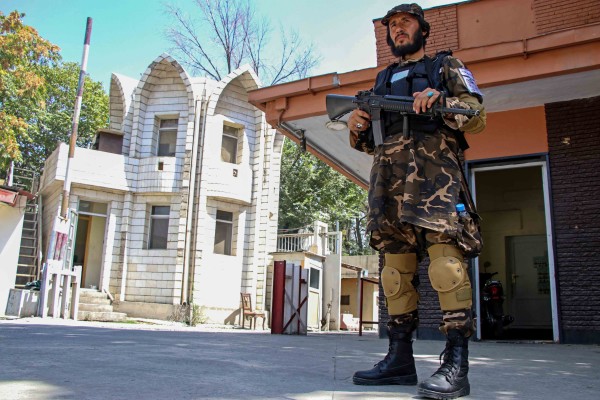On September 29, Al Jazeera’s Kabul correspondent, Ali Latifi, published an article with the arresting title ‘Death knell’, in which he describes the hardships Afghan journalists face since the Taliban takeover.
“From the day the Taliban took over Kabul, the media has been facing a lot of pressure and violence from the Taliban side… Just for doing their daily job”, Latifi quoted Sami Mahdi, a well-known Afghan TV host.
Afghan journalists fear in particular the introduction of new media regulations by the Taliban that would lead to higher levels of censorship.
An experienced online journalist for Al Jazeera English based in Kabul, Latifi has covered stories on Greece, Qatar and Afghanistan, focusing on migration and refugee issues. But since the Taliban’s takeover, Latifi mainly writes about the life of Afghan people under the rule of the radical Islamist group.
Since the takeover, work has become “chaotic and confusing” for journalists, Latifi told IPI by phone. Despite initial promises made by Taliban spokesman Zabihullah Mujahid that journalists would be free to do their jobs, Latifi has since reported on “the intimidation of journalists, on having their equipment confiscated, being abused, being tortured, and being hit”.
‘Death knell’: Afghan journalists fear new Taliban media rules https://t.co/iDkM0uDqdG (for @AJEnglish) @Samiullah_mahdi @pagossman @CPJAsia
— Ali M Latifi (@alibomaye) September 29, 2021
“During the first press conference, spokesman Mujahid told us: be honest, be transparent”, Latifi said. “But days after the press conference, I interviewed a journalist whose camera had been confiscated, who was beaten up by the police. Journalists Taqi Daryabi and Nemat Naqdi from the Kabul-based media outlet Etilaat Roz were detained and attacked. Their wounded, bruised backs circulated over the internet.”
There is a great difference between the words of Taliban leaders and the soldiers on the ground. “The Taliban’s leaders make great promises, but average soldiers would place their hand on your lens and shoo you away. Under the Taliban, there is no system that holds these soldiers accountable, there is no ministry that they should answer to. And they have even bigger weapons than before.”
Since the takeover, the threat and dangers are always in the back of Latifi’s mind. “Before the Taliban ruled, I felt having a press card with me was some kind of insurance”, he said. “But that has disappeared.”
Shutdown of media outlets
Despite the threats, many outlets continue to air, even reporting on the arrest of their own staff. “The TVs are still there, the internet is still functioning, the radios are still on. It has become hard to do our work, but people will continue to do it for as long as they can”, Latifi said.
But that work has already become more complicated. Earlier this week, the Taliban issued a new set of media regulations, requiring media outlets to “prepare detailed reports in coordination with the Government Media and Information Center (GMIC)”, which is currently chaired by a former Taliban spokesman. The new rules worry journalists, as they fear that further censorship of Afghan media is imminent, Latifi wrote in an Al Jazeera report.
In the last three weeks, 150 media organizations have shut down, Latifi told IPI. “That is not just because of the limitations on free speech, it’s also because there is no money for these outlets to continue their work.” Since the Taliban’s takeover, Afghanistan’s internal banking system froze, and the U.S. suspended foreign aid to the country and froze billions of assets. Access to cash is limited. “This means that journalists, too, cannot pay their employees and continue the work”, Latifi said.
On September 1, Reporters without Borders estimated that fewer than 100 of the initial 700 female journalists were still in Afghanistan. “Now, almost all female journalists left”, Latifi said. “I am currently writing a story on two female journalists, one of whom was initially very positive about the situation. When the Taliban first took over, she thought: I can make this work. But later, when she went out and started to film and to try and work, they beat up her driver and they were telling her to go home. Then she realized she couldn’t stay.”
“There’s no such thing as women’s rights anymore,” in Taliban-run Afghanistanhttps://t.co/aFjNTJqcsJ
— Ali M Latifi (@alibomaye) September 21, 2021
These dangers have led to a decrease in reliable reporting from Afghanistan. “Currently, there are a lot of false reports coming out of the country, and misinformation spreads fast”, Latifi said. “For example, last week, I was on a foreign TV station and they said all girls’ sports were banned. But that is not true, no law has been changed yet.” It makes his work on the ground even more complicated, he said. “Foreign media organizations should be therefore careful when distributing information on Afghanistan’s current situation. Fact-checking is more important than ever.”
Unpredictable
Latifi, who is now in Doha but will soon return to Afghanistan to report, believes it’s the unpredictability that makes working under the Taliban so dangerous. “I do not know when my reporting will lead to violence. I argued twice with the Taliban, openly in person. I was terrified both times. Nothing happened to me. But at the same time, a TOLO journalist was beaten up by the police when he spoke to day laborers about construction work and the economy. They took his equipment and arrested him.”
“Covering even the most uncontroversial topics can now lead to arrest or violence, but you just never know if it will”, Latifi stated. “That’s what makes it so scary.”



